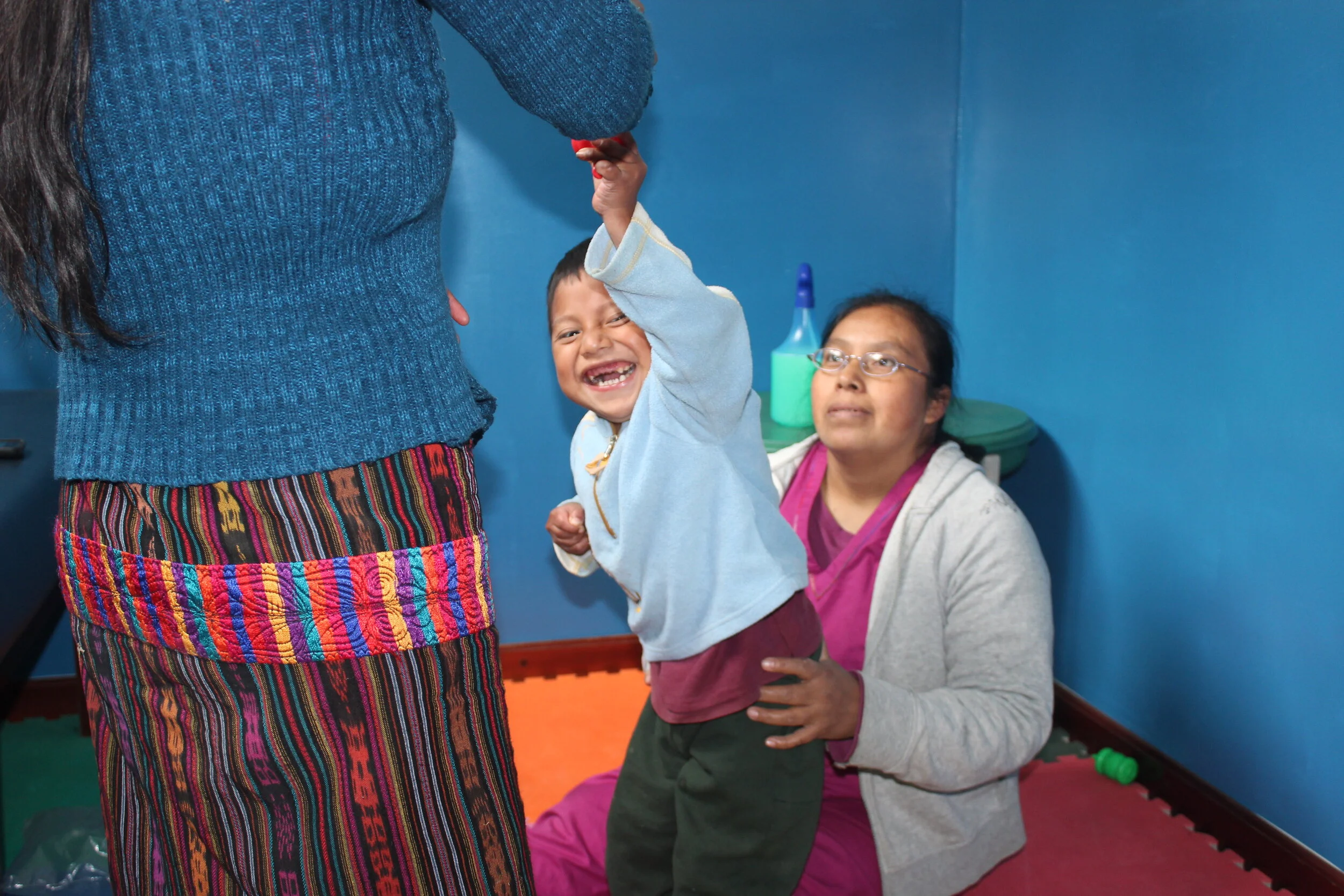For Tomasa in the mountains of Guatemala, only studying to the third grade set her up on a fairly predestined course: get married and raise a family. She did just that until she attended one of our rehabilitation promoter trainings to learn how to provide basic physical therapy services for children and adults with disabilities in Guatemala.
“I remember during the course how difficult it was to keep up. Reading for me is hard and it took me longer than other students to review some of the notes and grasp some of the concepts. When I passed the course and actually started working in the program, I was so scared. Could I really do it?”
Not only could she do it, but she brought a unique dynamic to the team. Her natural gift for making people feel welcome and cared for made it easier for the physical therapist overseeing the program to perform an initial evaluation when Tomasa translated from Spanish to K’iche, the local language. She became a role model for other rehabilitation promoters in how to care for patients in body, soul, and spirit.
Tomasa sharing, in Spanish, her experience teaching social distancing to a friend.
This year when we asked for her feedback on our first video course for COVID-19, she shared, “I’m not one to use computers much, but I was able to get my son to help me. Having videos rather than written information really helped me grasp and understand the concepts. In addition, it made it easy to go back and review a video, if needed, when trying to complete an assignment.”
When our rehabilitation promoter training courses were shut down because of COVID-19 in Guatemala, we didn’t know we’d come up with a new way to provide training for future rehabilitation promoters. With the success and positive feedback we’ve received from this course, we are working to get all our trainings in a video format.
In the future, our trainings will be a combination of video and in-person training. We’ve also dreamed about the following:
All seven of our courses in an app on a smart phone or tablet for easy access and use by the people we train.
Videos/course materials not only in a country's national language, but the heart language of the people in the communities in which they live.
Moving beyond Guatemala to train rehabilitation promoters in other countries, a video format to make it easier to train them and get other professionals involved on a short-term or long-term basis
This year when we asked for her feedback on our first video course for COVID-19, she shared, “I’m not one to use computers uch, but I was able to get my son to help me. Having videos rather than written information really helped me grasp and understand the concepts. In addition, it made it easy to go back and review a video, if needed, when trying to complete an assignment.”
When our rehabilitation promoter training courses were shut down because of COVID-19 in Guatemala, we didn’t know we’d come up with a new way to provide training for future rehabilitation promoters. With the success and positive feedback we’ve received from this course, we are working to get all our trainings in a video format.
In the future, our trainings will be a combination of video and in-person training. We’ve also dreamed about the following:
All seven of our courses in an app on a smart phone or tablet for easy access and use by the people we train.
Videos/course materials not only in a country's national language, but the heart language of the people in the communities in which they live.
Moving beyond Guatemala to train rehabilitation promoters in other countries, a video format to make it easier to train them and get other professionals involved on a short-term or long-term basis
Want to help us achieve this dream? Click on the Donate button at the top of your screen. Note: Financial support for Therapy Clinics International continues to be directed through Commission to Every Nation (CTEN) and all financial gifts are tax-deductible.

